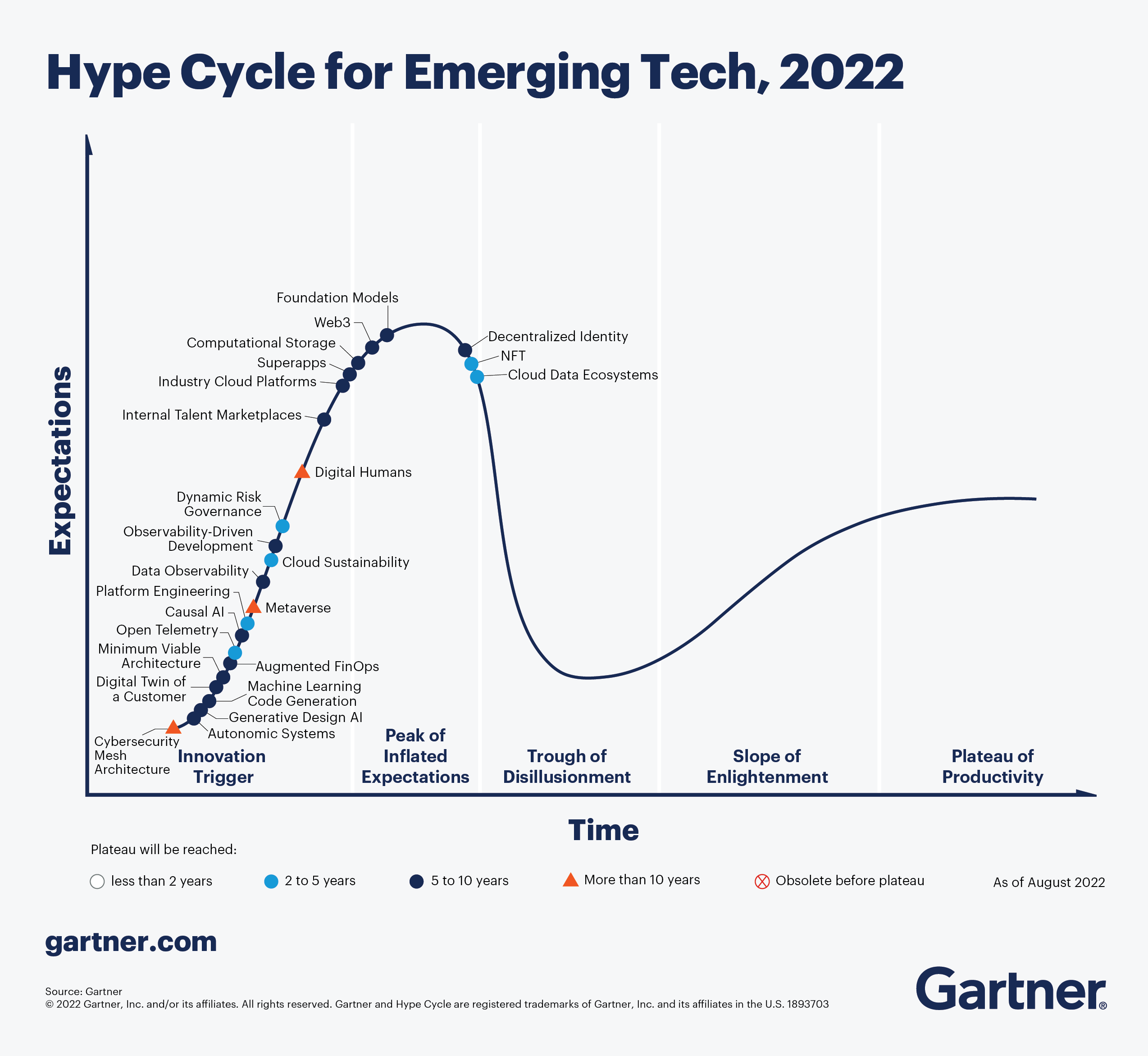Consumer Adoption: When Will the Metaverse Go Mainstream?

The metaverse has taken over the zeitgeist in the past few years, with billions of dollars poured into development, devices, and brand integrations. Consequently, a Wunderman Thompson Intelligence survey in March 2022 found that three-quarters (74%) of consumers knew about the metaverse versus one-third (32%) in 2021.
However, ask the regular man on the street, “what is the metaverse?” and you’ll get enough material for an SNL skit with barely 15% of consumers understanding the metaverse enough to explain it to someone else.
To know where the disconnect stems from and how marketers can best position themselves, we spoke to Charles Adelman, Infillion’s VP of Business Transformation and Innovation and head of Infillion Labs to get his in-the-trenches take. A cross-disciplined technologist with 20+ years of experience spanning adtech, martech, product, media, and immersive experiences, Adelman has written patents in the AR/VR/XR spaces designed specifically around user experiences and legacy content/advertising.
Ready Player One
Adelman likens this time to the early days of the internet, when awareness of Netscape and Internet Explorer was high, but consumer understanding and usage were low. He explains, “Understanding what transpired in the early nineties, people are more attuned to what the metaverse could be, not what it is. They’re only getting sound bites from news blurbs, but if you don’t use [it], it’s so out there.”
How does one describe the metaverse (and its potential) to a layperson?
In its most basic form, the metaverse will be a new way to experience and navigate our digital worlds. Through wearable technology (think Fitbit or Google Glass on steroids), the web becomes a multi-dimensional experience. Adelman goes further, saying, “instead of a flat 2D screen where you’re typing away, watching a video…imagine that was living around you. [Via wearables] everything you see, touch, and hear will be part of the next phase of the web, the metaverse.”
For those who need sight, sound, and motion to understand, Adelman recommends watching the movie Ready Player One (based on the book of the same name by Ernest Cline). For the moment, Adelman sees the metaverse as only a “talking point” until it becomes genuinely functional enough for mainstream adoption. He compares it again to the early days of the web when everything was still the wild west until “a functional ecosystem, format, process, scope” was built for the internet. Only then was it able to be marketed and deployed for mass consumption.
Consumer and Brand Backlash
With all the blather and little payoff, it’s no surprise consumers aren’t the only ones disillusioned with the metaverse. By the second half of 2022, the business hype surrounding the metaverse had started collapsing.
- Mark Zuckerberg’s vision of Meta’s future looked like VR by PowerPoint
- NFTs received a (deserved) consumer backlash, with multiple game companies walking away
- After peaking at 773 filings in March 2022, the number of trademark applications filed in the U.S. for the metaverse or virtual goods decreased more than 50% to 334 by October 2022, per intellectual property lawyer Mike Kondoudis
Additionally, with gaming as the current driver of VR/AR adoption, protecting children has become a flash point. The Wunderman survey found that most parents are concerned about their children’s privacy (72%) and safety (66%) when online. Adelman is sanguine about the dangers posed by the metaverse. Through governmental guard rails and consumer-controlled protocols, he believes the metaverse will actually “be more secure. We’ll have the opportunity to build security containers around [a child’s world] to keep out a certain type of people.”
As for the nefarious characters making the news and keeping investors up at night, Adelman admits we’re in the midst of a “land grab” with a “bunch of charlatans” trying to make quick bucks with speculative NFTs and badly thought-out ecosystems. He thinks this is short-sighted and recommends investing instead in the underlying functional technology. Though a long-term proposition, he believes the “money will be exponential” when it comes to fruition.
Oscillating Hype Cycles
So when will the steady metaverse money start rolling in?
The metaverse debuted in 2022 on Gartner’s Hype Cycle for Emerging Tech, which predicts it will be at least a decade before the metaverse goes mainstream. However, even within that time frame, the metaverse is not on a steady growth curve because it isn’t a singular behemoth (looking at you, Meta). The timing of innovations and consumer adoption of individual hardware, software, content, and experiences directly affect its growth or stagnation.
For example, while NFTs might be on a downward trajectory now, AR and VR are starting to rise again. Adelman predicts, “I don’t think we’re going to ever hit a true trough [of disillusionment]. Because of oscillation, all these different waves in different patterns of those hype curves. None of [the individual parts] are ever going to hit at the same time. You’re going to see these faster, faster peaks and troughs. They’re going to level out together to a fairly plateaued middle.”

When pressed for concrete timing, Adelman sees 2023 being a “shakeout” year. Based on his in-depth knowledge of the industry and the players, he anticipates the 24 months starting January 2024 through the end of 2025 will “be the largest evolution in the next phase of human-computer interactivity.”
For more insight into the future of the metaverse, watch this webinar recording of Charles for for the AAF Creative Caffeine Chat here.
Subscribe to our blog:
Related Posts:

The Coolest Ads We Built In 2024
2024 was a year of continuous innovation at Infillion. Our work ran the gamut from boutique ads designed for live, in-person audiences, to streamlined ad experiences built for broad consumption and easy production. In short: it was a year full of work of which we’re...

Infillion’s Top Ad Tech Predictions for 2025
2024 has been a year of immense change and growth in the ad tech industry. The buzzword on everyone’s lips – again – has been artificial intelligence, and brands have been hard at work figuring out how to operate in a cookieless future even though Google backtracked...

Your Customers Want Gift Cards for the Holidays. Why Not Advertise Them?
When was the last time you saw a major retailer advertising gift cards as a great holiday present? You probably had to think about that one. Giving someone a gift card for Christmas or Hanukkah, after all, is seen as a cop-out or even a social faux-pas. Plus, gift...
Let's Connect
We can help you create the personalized ad experiences viewers expect.


